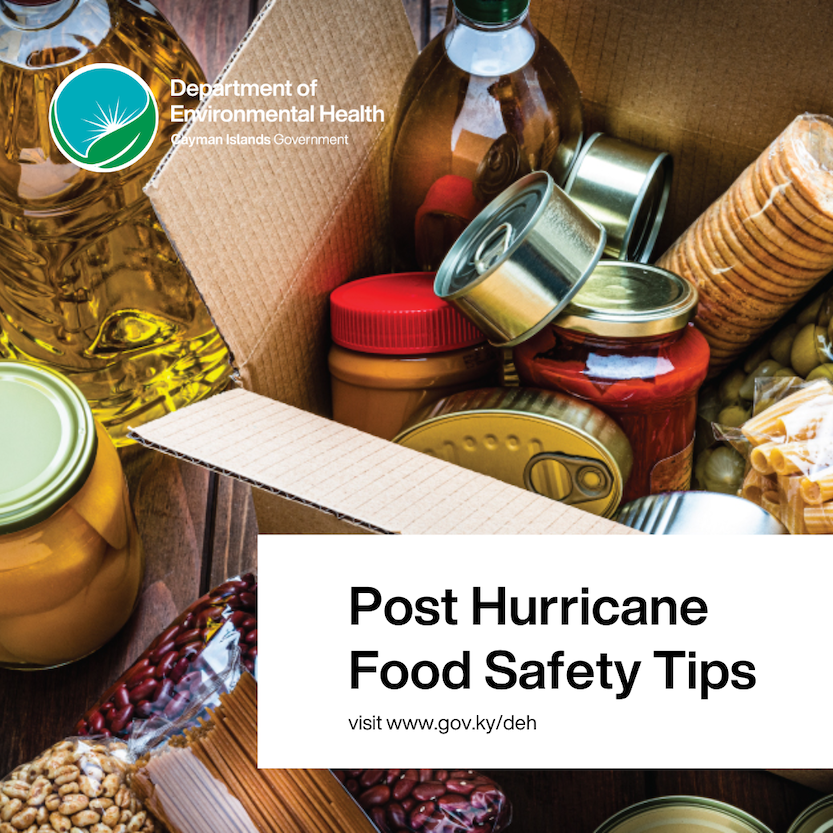Cayman DEH Post Hurricane Food Safety Tips


Grand Cayman, July 3, 2024 – The Department of Environmental Health (DEH) is urging residents to exercise caution when handling and preparing foods after the passage of Hurricane Beryl. Extreme vigilance is necessary at this time as food quality can become compromised as a result of flooding or loss of power.
The following are recommendations to reduce the risk of foodborne illness after the incidence of flooding:
- Practice basic sanitation:
- Wash hands thoroughly with anti-bacterial soap before handling food and after using the toilet, handling raw meat or contaminated materials.
- Use disinfectant wipes or hand sanitisers if no water is available for hand washing.
- Ensure that utensils used for food preparation are clean and safe:
a. Wash all items in detergent solution and rinse in potable water;
b. Immerse glass, porcelain, china and plastic in a 10% chlorine bleach solution;
c. Boil silverware for 10 minutes;
d. Wash utensils in potable water and then air-dry;
e. Discard soft, porous plastic and wooden items that have come in contact with contaminated water;
f. Sanitize storage areas that have been exposed to floodwater with a 10% bleach solution before kitchen utensils are placed in them.
- Discard the following food items if they have come into contact with floodwater:
a. Meat, poultry, fish, eggs and vegetables;
b. Previously opened food packages and containers;
c. Glass jars that have cardboard lid liners or broken seals;
d. All food in canisters, cardboard boxes, paper foil or cellophane;
e. All food in swelling, punctured, leaking or rusted cans;
- Avoid raw fruits and vegetables; use canned vegetables instead.
- Discard perishable food items that have been stored at room temperature for more than four hours. These include meats, poultry, seafood, milk products, soft cheeses and prepared food.
- Cook food thoroughly to temperatures of at least 85°C or 185°F at the CORE. This is especially critical for meat, poultry and seafood.
- Ensure that food is served as soon as it is prepared, while the food is still hot. If this is not possible, ensure that food is either kept hot at or above 68°C or 148°F or cold at or below 5°C or 41°F.
- If food is to be reheated, ensure that all parts of the food are thoroughly heated to a temperature of at least 85°C of 185 °F.
- To eliminate the likelihood of cross contamination; prepare raw and cooked foods in different areas on separate surfaces and using separate sets of utensils.
- All persons involved with food preparations should to wash their hands frequently during food preparation, after every interruption and before handling different types of foods.
- All persons preparing food should ensure that all small cuts and abrasions are covered with a waterproof bandage. Gloves may also be worn as an added precaution. It is advisable that persons with infected wounds or lacerations should desist from handling food for public consumption.
For additional information, please contact the DEH at 949-6696, email us at [email protected], visit the DEH’s website at www.gov.ky/deh or message our Facebook page at https://bit.ly/3LEK55q






